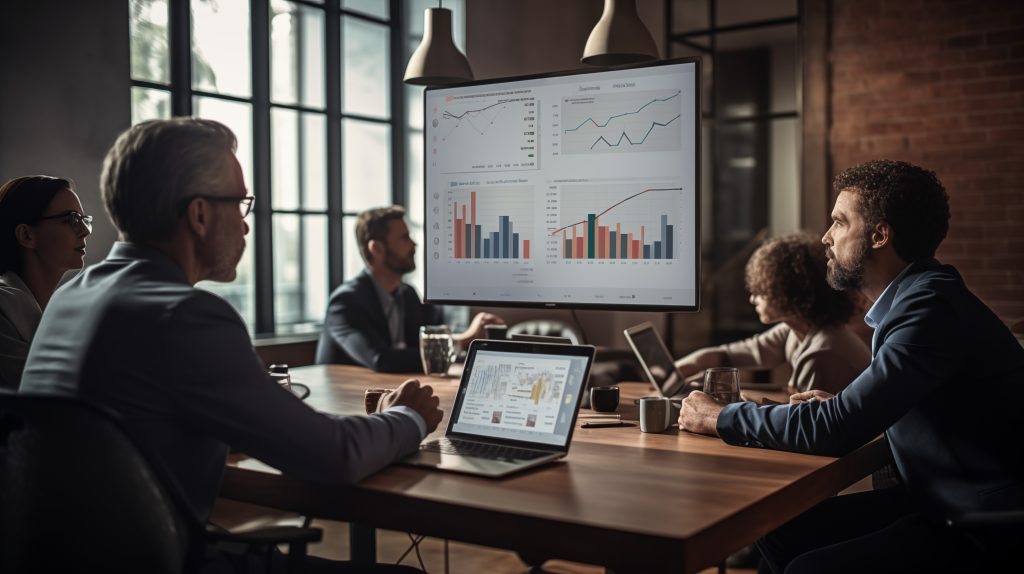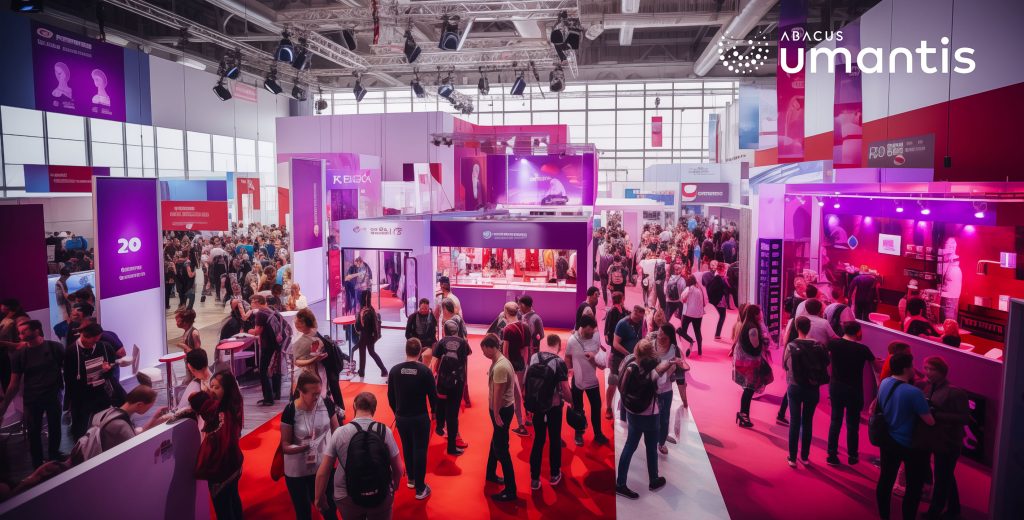Treffen Sie
uns auf der
Future of Work
am 15.05.-16.05
Hier mehr erfahren
HR erfolgreich machen,
ist unser Programm
Vom Einzelmodul bis zur Suite –
Ihre massgeschneiderte HR-Software
Die umantis HR-Suite
Gestalten statt verwalten
HR erfolgreich machen,
ist unser Programm
Vom Einzelmodul bis zur Suite –
Ihre massgeschneiderte HR-Software
Eine HR-Software für alles und noch viel mehr
Vom Cost Center zum Profit Center – ist das auch Ihre Vision von HR? Dann machen Sie mit Umantis daraus die Realität. Unsere HR-Software bildet weit mehr als sämtliche Prozesse der Personalarbeit digital ab. Es ist eine massgeschneiderte Lösung, die perfekt zur DNA Ihres Unternehmens passt. Wir entwickeln für jeden Kunden eine eigene Version der Software. Gemeinsam identifizieren wir im Vorfeld, was Sie tatsächlich benötigen, definieren den späteren Idealprozess und begleiten Sie bei der Implementierung. So vereinfachen und verbessern wir zielgenau Ihre HR-Arbeit. So erreichen Sie die perfekte Balance zwischen Technologie, Organisation und Mensch, die alle einbindet und jeden weiterbringt.
Entdecken, binden und qualifizieren Sie nicht nur neue Talente. Erleben Sie eine völlig neue Art der Personalarbeit, von Mitarbeitenden und der Linie gleichermassen geschätzt. So entfaltet HR seine volle Wirkung.
Eine Lösung, so modular wie Sie es sich wünschen
Entscheiden Sie selbst, welche HR-Prozesse Sie digital gestalten möchten. Wir liefern Ihnen exakt das, was Sie tatsächlich benötigen: vom einzelnen Modul bis zur kompletten HR-Suite.












An alles gedacht


-

Cloud Basiert
Cloud Basiert
(100% SaaS)
Nutzen Sie den vollen Umfang der Umantis Software in der Cloud. Machen Sie sich keine Gedanken zu Hosting, Betrieb und Deployment. Bilden Sie Ihre Prozesse schnell, einfach und digital mit unserer prämierten und standardisierten SaaS-Lösung ab.
-

DSGVO-konform
DSGVO-konform
Die DSGVO setzt einen hohen Standard für den Datenschutz und gilt für jede Organisation, die personenbezogene Daten in der EU verarbeitet – unabhängig davon, ob diese Organisation selbst in der EU ansässig ist oder nicht. Wir hosten in Deutschland und in der Schweiz und sind zu 100% DSGVO-konform.
-

Alles aus einer Hand
Alles aus einer Hand
Bilden Sie alle relevanten HR-Prozesse digital ab: Von der Talentsuche mithilfe des Bewerbermanagements über das Onboarding bis hin zu Zielvereinbarung, Personalentwicklung und Nachfolgeplanung. Und dazu noch die Administration und Business Intelligence. Wir bieten Ihnen die nötige Freiheit, um mutig voranzugehen und neue Ideen für eine erfolgreiche Zukunft zu entwickeln.
-

3-Dimensional
3-Dimensional
Eine exzellente Software ist wichtig und doch nur „Mittel zum Zweck“. Deshalb unterstützen wir Sie bei der Einführung mit viel Methodenkompetenz und HR-Knowhow. Dabei betrachten wir alle drei entscheidenden Komponenten: Die Organisation, die Technologie und den Menschen. Nur mit dieser Dreidimensionalität wird es eine Lösung, die den gewünschten Nutzen vollends erfüllt.


Cloud Basiert
(100% SaaS)
Nutzen Sie den vollen Umfang der Umantis Software in der Cloud. Machen Sie sich keine Gedanken zu Hosting, Betrieb und Deployment. Bilden Sie Ihre Prozesse schnell, einfach und digital mit unserer prämierten und standardisierten SaaS-Lösung ab.

DSGVO-konform
Die DSGVO setzt einen hohen Standard für den Datenschutz und gilt für jede Organisation, die personenbezogene Daten in der EU verarbeitet – unabhängig davon, ob diese Organisation selbst in der EU ansässig ist oder nicht. Wir hosten in Deutschland und in der Schweiz und sind zu 100% DSGVO-konform.

Alles aus einer Hand
Bilden Sie alle relevanten HR-Prozesse digital ab: Von der Talentsuche mithilfe des Bewerbermanagements über das Onboarding bis hin zu Zielvereinbarung, Personalentwicklung und Nachfolgeplanung. Und dazu noch die Administration und Business Intelligence. Wir bieten Ihnen die nötige Freiheit, um mutig voranzugehen und neue Ideen für eine erfolgreiche Zukunft zu entwickeln.

3-Dimensional
Eine exzellente Software ist wichtig und doch nur „Mittel zum Zweck“. Deshalb unterstützen wir Sie bei der Einführung mit viel Methodenkompetenz und HR-Knowhow. Dabei betrachten wir alle drei entscheidenden Komponenten: Die Organisation, die Technologie und den Menschen. Nur mit dieser Dreidimensionalität wird es eine Lösung, die den gewünschten Nutzen vollends erfüllt.
Neues auf dem HR-Gebiet
HR-News, Ratgeber, Produktvideos – bleiben Sie mit Umantis immer auf dem neuesten Stand. Was immer sich bei HR und der HR-Technologie tut, wir informieren Sie und bilden Sie zu unserer Software weiter.
Jetzt klicken und durchblicken!
Nächster Halt für Umantis: FUTURE OF WORK im malerischen Bad Loipersdorf in Österreich. Als führendes Unternehmen im HR-Bereich freuen wir uns darauf, …
Was sind die grössten Fails im Recruiting? Wie verhindern wir, dass sie überhaupt entstehen? Was versteckt sich hinter der Umantis-Methode und wie …
Wir gehen nun mit unserer neuen Umantis HR-Suite über das Ihnen bekannte Talentmanagement – Von der Mitarbeitersuche über Einstellungen und Weiterbildungen bis …
Blog





